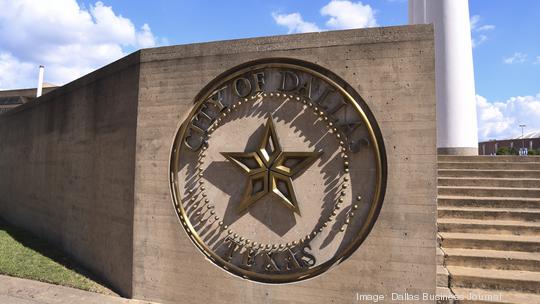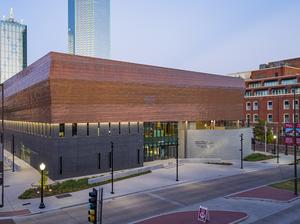
As one of the state’s largest public defender’s offices in a city that hosts Texas’ second largest jail, the Dallas County Public Defender’s Office sees more than 30,000 cases per year. Many of those are for low-level, non-violent offenses, according to Lynn Richardson, its chief public defender, that keep many people locked up while they await their trials.
And amid a global pandemic and a national conversation about police and jail reform sparked by the killings of unarmed Black people, the office is using new startup technology to keep its clients safe and help keep communities together.
“The pandemic sort of ended up getting us to be more aggressive about getting as many people as we can out of the Dallas County jail,” Richardson told NTX Inno.
This month, the DCPDO partnered with California- and Massachusetts-based social justice communication platform and public benefits corporation Uptrust to implement the startup’s technology that allows for two-way communication between attorneys and clients. The effort aims at reducing technical violations and client’s failing to appear for court date, which results in more offenses and jail time. It will also help attorneys find resources outside the criminal justice system, such as mental crisis intervention, to help reduce further offenses.
“Our goal, as an organization, is to help people navigate the confusing and often dehumanizing criminal justice system while simultaneously saving local jurisdictions like Dallas County millions of dollars per year,” Uptrust founder Jacob Sills told Inno via email.
The partnership marks the second public defender's office partnership for Uptrust in the state - the other is in El Paso County - and it plans to announce at least two more next month. It follows a $1.3 million funding round the company received in early March to help expand its platform’s features and reach new jurisdictions.
Launched in 2017, Uptrust allows attorneys and clients to send personalized messages to each other, keeping them up-to-date on findings and proceedings. It also sends reminder messages to clients’ phones, reduced the number of people who fail to appear for their court dates. This is an issue Richardson said is not all that uncommon and often affects low-income clients and people of color, who can lack transportation connectivity or the ability to leave work or the care of a child. Now, working with nearly 150 public defender offices across the country, Uptrust has been able to reduce failures to appear by about 50%, saving billions in pre-trial incarceration.
“I couldn’t exist anymore efficiently without having text messaging, whether my doctor or my dentist or my hair stylist, with back-to-back meetings,” Richardson said. “Text messaging has been a value to the business community… it’s not really that much different for the people who are engaged in the criminal justice system, although they have additional challenges.”
Both Sills and Richardson said the pandemic has accelerated the need for technology in the criminal justice system, not only because those on pre-trial detention are at higher risk of becoming infected in jails but also because many jury trials have been postponed and numerous court hearings have been moved online. Richardson said that during the pandemic, her office has seen more communication that has helped resolve a number of cases.
“We have always felt and I have always felt that we have to make an impact on society and communities, and specifically our communities of color, who have been impacted by the incarceration of so many,” she said.
Recent headlines and protests surrounding the criminal justice system has brought the conversation about that impact to the forefront of many people’s minds. Richardson said beyond its recent partnership with Uptrust, the DCPDO has been working to reduce the amount of people who end up in prison, through specialty courts and other methods. Although, she adds that with the new technology, the office’s lawyers have seen more personal communication with clients, allowing them to better serve their needs in and out of the court, as well as produce better court outcomes.
Though she said bail reform is often fought by the bond industry, she sees the idea becoming more talked about in society, noting that pre-trial incarceration largely affects only those who can’t afford a monetary bond. She also said that because a disproportionate amount of people who are incarcerated are people of color, it creates a cyclical effect in the community, as it can pull families apart and deny future job opportunities to those behind bars.
“When people go to jail, if they have a job, they lose their job. Sometimes they lose their kids, and the data shows there are people who will end up sometimes pleading guilty to offenses that they’re not guilty of because they want to get out of jail,” Richardson said. “It’s easier to have those conversations about better criminal justice outcomes when people are out in their own homes than when they’re stuck in jail and anxious to get out, especially now when we have so many challenges and so many people are stuck in jails and prisons across this country.”






